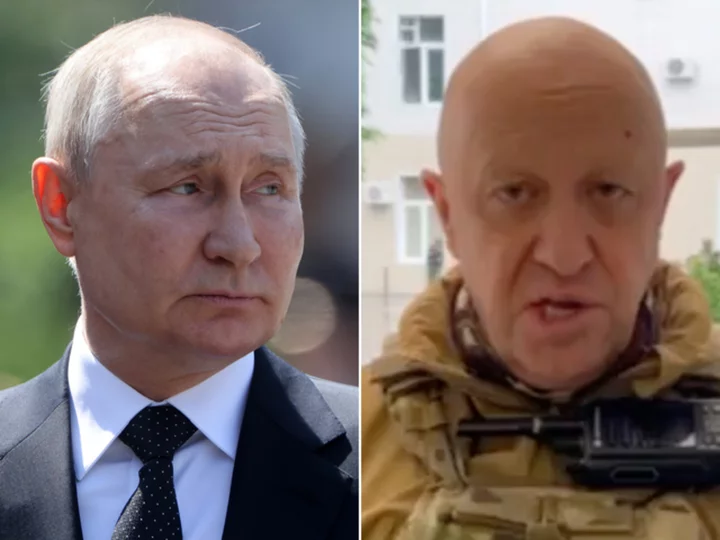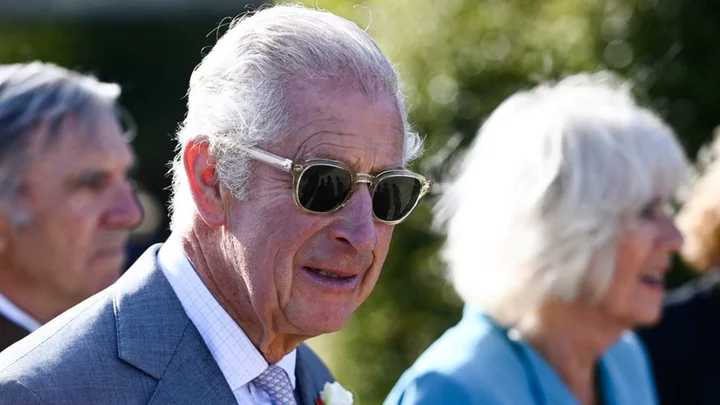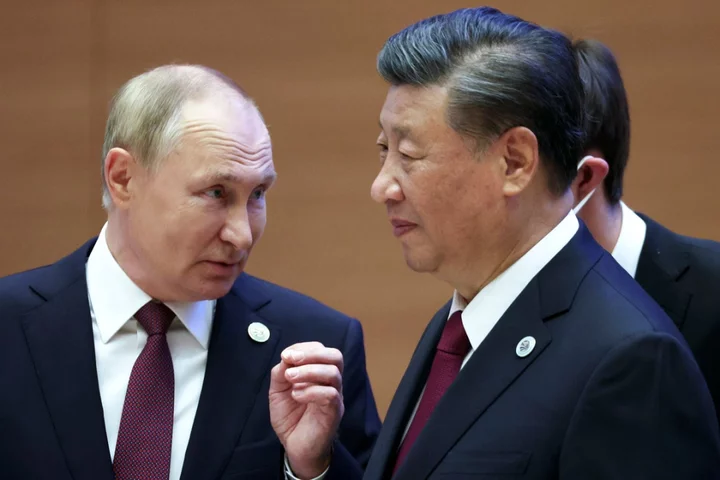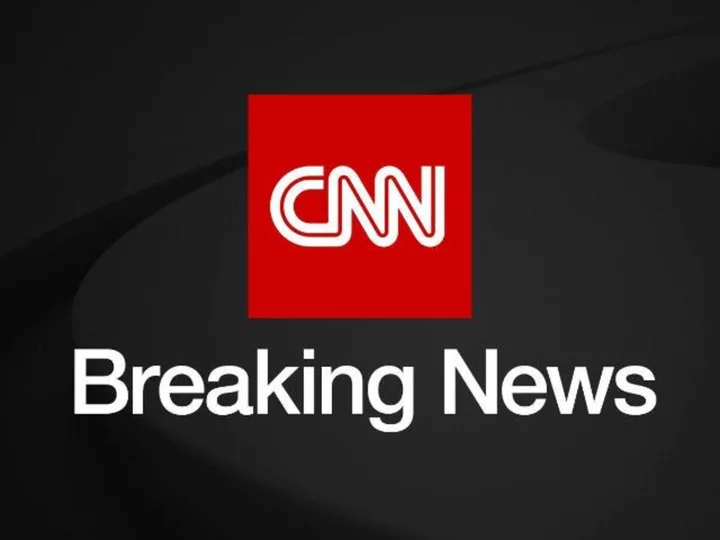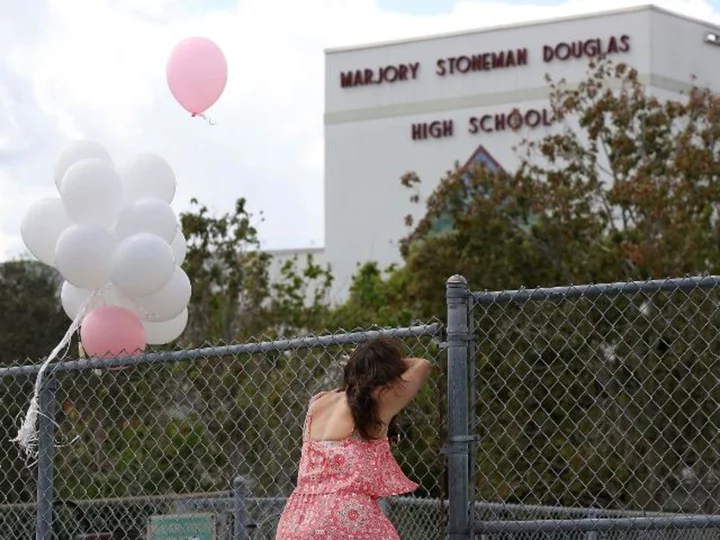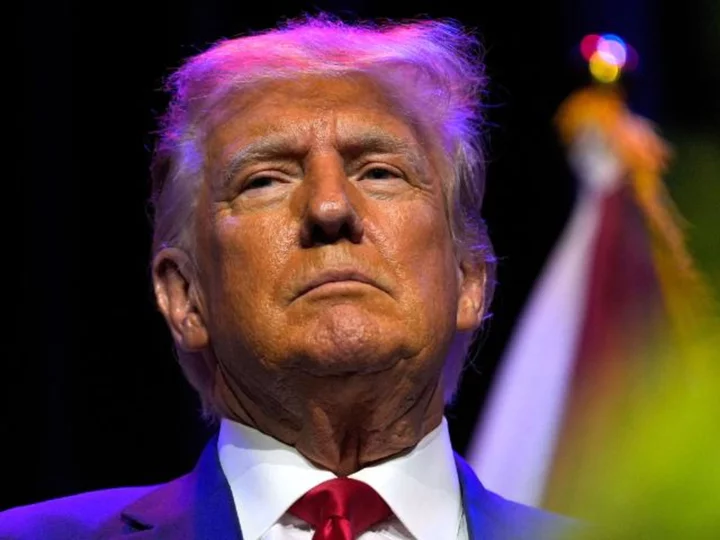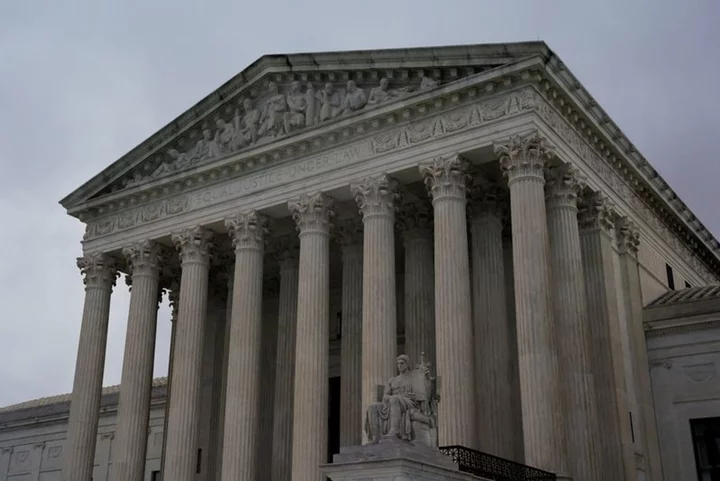The mystery becomes yet more opaque even as the Kremlin tries to clear it up.
Yevgeny Prigozhin's whereabouts have been unclear since he appeared at night in an SUV in Russia's Rostov-on-Don, at the close of his short-lived, yet seismic, mutiny. We have seen affiliated planes criss-crossing Russian and Belarusian airspace; his purported wigs and gold bars; even a man similar to him in a surgical mask getting off a helicopter in St. Petersburg.
But it is clear from President Alexander Lukashenko's comments last week that Prigozhin is not -- as the deal he said he agreed to with the Kremlin stipulated -- in Belarus. Neither are his fighters.
Instead, the Kremlin on Monday tried to provide some clarity, after French newspaper Liberation reported a meeting between Putin and Prigozhin on June 29. Dmitry Peskov, the Kremlin spokesman, confirmed in a conference call with journalists the meeting had taken place. He intimated that Putin had met with Wagner's commanders and discussed further options for their work, and that the president had heard from them that "they were ready to continue to fight for the Motherland." Peskov added: "That's all we can say about this meeting. I can't tell you more."
It is important to pause and conjure just how surreal the meeting Peskov is describing sounds. That five days after the greatest and most violent threat to Putin's rule yet, he would invite into the Kremlin the chief mutineer and possibly as many as 30 of his commanders to discuss how they could work.
This would mean that 48 hours after Putin told assembled soldiers inside the Kremlin walls how they had prevented a "civil war," the Kremlin head had flown to the southern Russian city of Derbent for a photo opportunity, and returned to greet the actual mutineers inside the same Kremlin walls the next day. That meeting was then kept secret for 11 days. Weird, doesn't even cut it.
But this is in keeping with the Kremlin's bid to contain the fallout from Putin's most dangerous weekend yet. They have adapted a "green-screen" approach -- suggesting nothing is amiss domestically, and that Prigozhin has vanished into the ether, whilst his infrastructure is being publicly dismantled.
The raids on his buildings, the closure of his media outlets, his lack of audio messages, the Kremlin's complex suggestion of a healing meeting: they all point to a man whose disappearance is more problematic for Putin than it might immediately suggest.
The fact we have yet to get visual confirmation of Prigozhin's fate is a sign of Putin's weakness -- a sign that all the options the Kremlin faces contain drawbacks. If Prigozhin has been forgiven -- as the Kremlin meeting might suggest - then why is there no public acknowledgement of that, a bid to at the least file down the fangs of stray Wagner fighters?
If Prigozhin remains at large, shunning the deal Lukashenko claims to have struck, then what does that say about Putin's hold on power? And if he has been arrested -- or even worse -- then the Kremlin's reluctance to state that publicly suggests Prigozhin commands great loyalty in the military and is not someone Putin wants to be seen to have hurt or shamed publicly.
Twenty years ago, the Kremlin head had the richest man in Russia -- Mikhail Khodorkovsky -- taken off an airplane at gunpoint, so he could dismantle his political ambitions and business empire.
Now Putin is faced with a real and palpable threat, and instead meets this with silence, and delayed news of a woefully secretive meeting, in which mutineers pledge loyalty again and are apparently forgiven.
This is not the only unsettling silence the Kremlin are is now conjuring. We are still unclear on the whereabouts of Sergey Surovikin, a top Russian general reportedly under suspicion for prior knowledge of the coup attempt.
Valery Gerasimov, the Russian chief of general staff, finally emerged in video published by the Defense Ministry on Monday to show he is indeed alive, well, and in charge of the Ukraine war. These absences do not speak of Putin's assured resolution of the threat against him.
Perhaps the Kremlin's leaders think this veil of silence projects strength: that only they know the answers to these questions and retain ultimate power? Again, this would be another miscalculation betraying how far from reality they have drifted.

